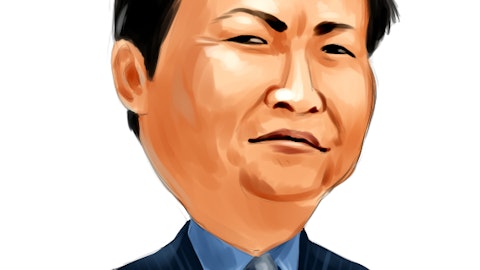Today’s investing environment is one that forces decisions to be made and, consequently, many errors. In so many cases, investors take an emotional approach to their portfolio, resulting in impaired profit-taking or riding the bull to the bear without letting go. Additionally, I’ve witnessed many astute men and women rely on countless research reports just to buy a stock and stay up all night worrying about it.
My call to action is to take a pragmatic approach to investing. Put aside all of the quantitative analysis, expert opinions, and broker suggestions. When you take a step back from all of the white noise, the bigger picture emerges, and an educated business decision is at hand. This decision is educated because of a real identification of risk, understanding what indecisiveness should produce, and finally, what a committed investment should look and feel like.
Identify what risk really is
Since neither you or I could ever know what exactly tomorrow would bring, we shouldn’t try to speculate on the details of the future, but focus the broader implications of what we are involved with now to curtail any surprise as much as possible. This philosophical perspective should posit a healthy fear into our lives, financial lives, and future.
Protection of assets is key to survival. Risk in your portfolio comes in several forms, the most prominent being the fact that you are not directly involved with the companies you’re invested in and mostly rely on third-party information to make investment decisions. In many cases, investment decisions aren’t based on cash flows, net present values, and bottom line revenue growth, but on subjective metrics such as price/earnings versus peers, technical indicators, and even rumors.
When in doubt, go to cash
I am going to assume the money you have invested has been acquired over years of hard work and saving, and is not the result of a lottery ticket. You know the value of the dollars invested, so why invest them if there is a shred of doubt in your mind?
Too often, investors move on risky positions because of a “gut feeling” rather than hard facts. During the arduous process of stock-screening or rifling through research reports your broker has sent you, fatigue sets in and the need to “just pick one” overtakes logic, and the feeling—better yet, emotion—that something needs to be done leads to an incorrect decision.
Rather than place the cash in a risky situation where you can lose due to indecisiveness, move the fenced assets to cash, where at least the most you can lose is the net margin between interest and inflation. I would much rather lose inflationary percentage points versus losing on market and stock volatility.
What should we buy?
When we boil it all down, what do we really know? We know that a particular company makes a particular product and we want to be a part of it. Or even, a stock is trending in a way I like, so I will act on it accordingly. It sounds to me emotion is involved, not objective fact.





